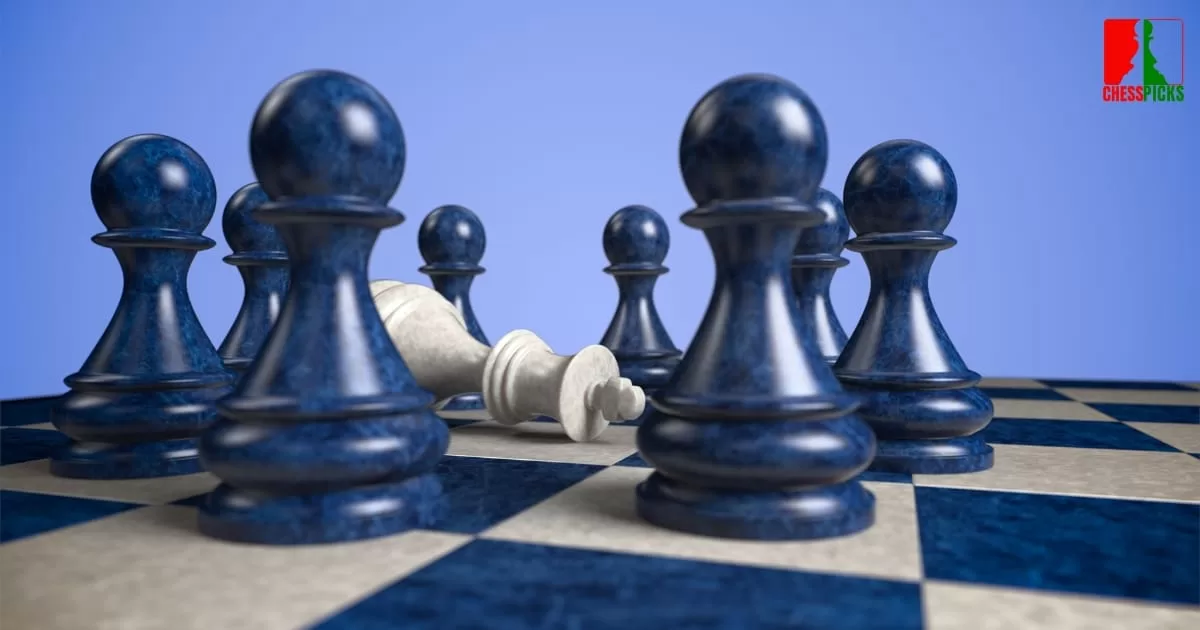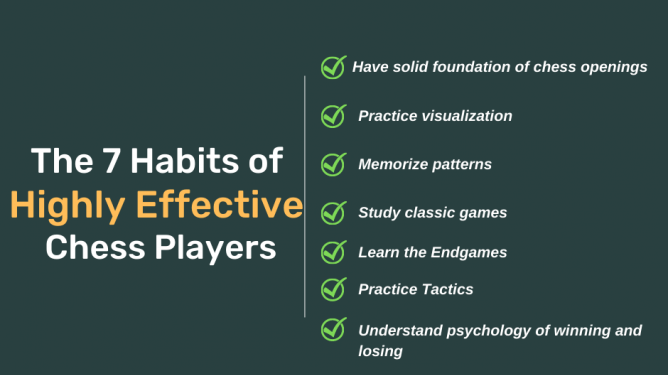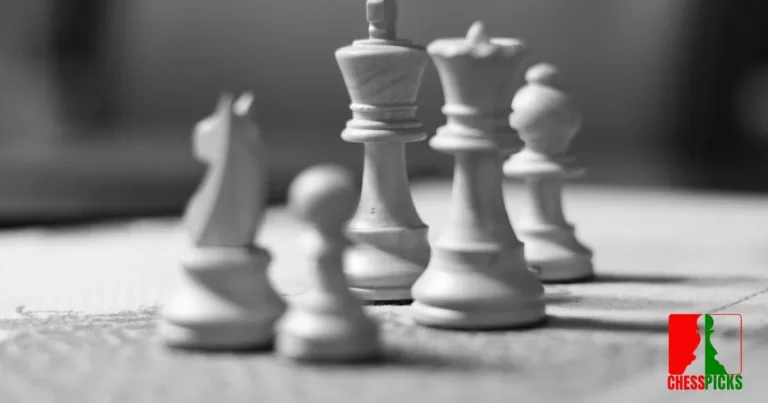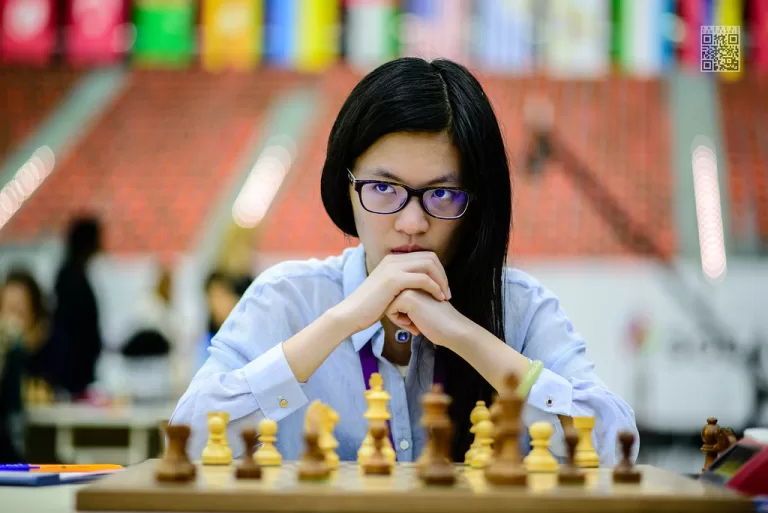
The 7 Habits of Highly Effective Chess Players
Chess players are a rare breed. We live by rules of logic and strategy, intending to overtake our opponent to achieve victory.
It’s a solo sport that tests our courage and ability to make decisions under pressure. Yet there is no one path to becoming an effective chess player.
Some of us are born with natural talent, but most players—myself included—improve their game through hard work and dedication.
If you’re like me, you’re constantly looking for ways to get better at chess. You want to improve your strategy and tactics and figure out how to win more games online and Over The Board (OTB).
And here’s the good news: I’m going to tell you exactly how I became such an effective chess player (spoiler alert: it wasn’t easy!).
Have A Solid Foundation of Chess Openings
As a new player, it is tempting to jump right in and start learning the middle game. After all, you want to know the best moves and get good at the game as fast as possible!
But your foundation is crucial for success in chess—and building your foundation means mastering the basics of opening play.
Opening basics are relatively easy for beginners because they don’t require memorizing anything too long or complicated. Instead, they focus on understanding critical themes from each opening variation.
It entails of how the chess pieces move, spaces per turn, the squares each piece covers, and which piece is protected.
Once you have learned all this information about openings by playing through a few games against an opponent or computer program, then everything else becomes much easier.
Knowing the opening strategies will make it easy to spot intermediate tacts like forks, skewers, and pins. You will also be alert to advanced maneuvers like sacrifices and endgame principles even when playing blitz.
Bonus Tip: Take time to study your opponent’s style and openings: This is invaluable information that can help you prepare for various types of opponents.

Practice Visualization
If you are going to play chess, you need to visualize. I mean this in the broadest sense: visualizing your next move and visualization as a tool for remembering patterns.
Visualization helps you understand chess positions and calculate variations quickly, which is essential if you want to improve your game.
Chess visualization also allows us to remember patterns that will help us in future games. Whenever you look at a position that you have never seen before, your brains often create a model based on some type of pattern recognition from experience or from seeing similar situations in chess books or games played by others.
The exact process is used when studying openings, endgames, and middlegames. It’s just another way for our minds to store information about chess positions so we can recall them easily later on.
Bonus Tip: In a classical game, try guessing the move your opponent will make next. Then close your eyes and visualize yourself responding to that move as if you were playing it. Repeat this for all possible moves.
Memorize Common Patterns
If there’s one thing that club players do wrong, they keep their chess knowledge in their heads instead of on paper. You need to engage your tactile sense to help you memorize quickly.
You can use drawings or flow diagrams to help you remember a process or a sequence. The same applies to pattern recognition.
Pattern recognition is one of the most efficient ways to learn and remember the game. The first step when studying chess is to identify a pattern from one or two moves out, then work backward until you can see how each move fits into the overall pattern.
Bonus Tip: Memorizing common patterns helps in all stages of the game, from the opening, middlegame, and even the end game. The more you commit to memory, the easier it is to play. This is an invaluable tool for playing quick blitz games online.
Study the Classic Games
You should study the games of the best players in your era, but don’t forget to study the classics well. You can learn a lot from Magnus Carlsen’s games. But there is also a tone of knowledge from Mikhail Tal’s 1959 candidates’ tournament games.
There is no harm in replicating their play styles and habits from these classic games. Mikhail Tal won the Soviet Championship in 1957 and 1958 with games that had classic brilliancy.
Bonus Tip: Read classic chess books like “The World’s Greatest Chess Games” by Reuben Fine or “500 Master Games of Chess (Dover Chess)” by Dr. S. Tartakower and J. du Mont. Regular practice and playing over these games is an excellent way to spend your chess study time.
Learn the Endgame
Magnus Carlsen is an endgame guru. But this comes after many hours of practice and training. Yes, this applies even to the world champions and top grandmasters. Mark Drovestsky’s Endgame Manual is a good chess book for intermediate and advanced chess players who need to improve their endgame skills.
In this book, Mark breaks down the different types of endgames and encourages readers to practice each several times until they master all of them.
We’ve all seen the romanticized version of chess—the one where a player is down on his luck, but when his opponent makes the slightest mistake, he can pull off an incredible win. This will only happen when you have mastered the endgame.
When most pieces are off the board, the person with the strongest endgame skills will triumph.
Bonus Tip: Always start with the end in mind. Your opening strategy will determine how you will be. If you exchange the bishops early in the game, you should ensure excellent skills in playing closed games. This will help you guide your opponent to an endgame that you are familiar with.
Practice, Practice, Practice
Chess is a game that requires a lot of practice. This should be done for all stages of the game, right from the opening through to the middlegame and the endgame.
One of the easiest ways to improve your chess is to solve daily tactics. Chess tactics are also referred to as puzzles. These are the set of chess positions that have been extracted from actual games. You will be required to recognize the next best move.
Generally, you will have to find a move that will have a slight advantage or have some tactical maneuver. With practice, you will only use your intuition to see tactical patterns and plan.
Bonus Tip: All you need to do is develop the habit of doing several puzzles every day. It doesn’t matter how many tactical problems you solve in a day; the most important thing is consistency.
Ensure that you consistently solve puzzles every day without fail. Find a website that you like and stick to it. Chess.com and many other chess websites have thousands of rated tactics for your level of play.
Understand the psychology of winning and losing
You’re going to lose some games. No one goes undefeated, and you don’t have to be an elite player to realize that. Losing is part of chess—and it can be a valuable tool for growth if you use it right.
When you make a wrong move in chess, you should not beat yourself up or curse. Try to control your emotions and investigate the thought process that led you to the problem. A good example is when a player loses the queen.
Many will give up and sometimes even resign. This is wrong; you don’t need a queen to win a chess game; with careful play, your pawn can reach the promotion square, and you will get your queen back.
Bonus Tip: You will learn much more from your losses than from your wins. So, embrace the failure, analyze your game and make sure you don’t lose in the same manner again.
Bonus Tip: Recommended Reading
Last but not least: Read Books. Not just Chess books, but also non-chess books. Whether you are a beginner, intermediate, or advanced chess player, the following books will help you improve your game:
- Atomic Habits – By James Clear (non-chess)
- The Power of Habit – By Charles Duhigg (non-chess)
- 7 Habits of Highly Effective People by Stephen Covey (non-chess)
- How to Study Chess on Your own – by Davorin Kuljasevic
These are just a few books related to habit formation and the need for planning your chess study and practice. We will review the books in detail in another article.
Final Thoughts
Now you have seven essential habits to help you improve your chess game. While they aren’t necessarily a formula for success, they are the foundation of an effective chess player’s approach to the game.
Remember, the most important thing is to play chess consistently and have fun! If you can master these seven habits, I fully believe anyone can become a great chess player.
Of course, even after reading this article (and maybe doing some research on your own), it can still be challenging to put all this information into practice.
Find an experienced chess player or trainer who can provide personalized guidance and support for any questions that come up along the way.
There’s no better person than a seasoned player who has already mastered these habits; they’ll be able to show you how each of them intertwines with the others to create the perfect strategy for winning any game—even against grandmasters!




Leave a Comment